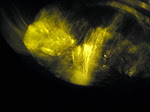Sound of Nature , Penguin Island - WA , picture by hendra boeniardi
Penguin Island, Rockingham WA - picture by hendra boeniardi
Only in love can I find You, my God.
In love the gates of my soul spring open,
allowing me to breath a new air of freedom
and forget my own petty self.
In love my whole being streams
forth out of the rigid confines
of narrowness and anxious self-assertion,
which make me a prisoner
of my own poverty and emptiness.
In love all the powers of my soul
flow out toward You, wanting never more to return,
but to lose themselves completely in You,
since by Your love
You are the inmost center of my heart,
closer to me than I am to myself.
Karl Rahner, Encounters with Silence
Obviously theology needs an area of freedom. No doubt theology’s free space was often unduly restricted in the years" before the Second Vatican Council. "Naturally, there are limits to its range of freedom wherever theology denies head-on and decisively a defined truth of Church faith."16 "…(Karl Rahner in an interview)
"Molta teologia - poco Dio." (A lot of theology - a little bit of God.) Cardinal Konig
Karl Rahner , seorang Yesuit menulis suatu karya filsafat yang sangat sulit dalam usia muda, pada tahun 1939 yang gagal dipertahankannya untuk mendapat Ph D, dengan judul Spirit in the World. Spirit in the World, merupakan interpretasinya atas metafisika pengetahuan Thomas Aquinas dalam kaitannya dengan filsafat modern, dimana Rahner mengembangkan sejumlah argument filsafat yang agak bersifat teknis. Gagal dipertahankan thesis untuk Ph D dalam bidang filsafat dihadapan pembimbingnya sendiri Martin Honecker searing penganut Thomas Aquinas yang tradisional. Pengalaman transcendental untuk mengalami Allah, dimana Allah menempatkan dirinya pada pusat sifat kemanusiaan kita.
Kita berhak sepenuhnya berpikir tentang penciptaan dan reinkarnasi………..Allah berkehendak untuk mengkomunikasikan dirinya kepada yang bukan Allah, Dan komunikasi ini dicapai secara definitif dalam inkarnasi. Saat Allah Dan dunia menjadi satu dalam diri manusia. Tetapi untuk mengkomunikasikan dirinya dengan yang bukan Allah, pertama – tama Ia harus menciptakan yang bukan Allah tersebut, yaitu dunia.Penciptaan dunia Dan segala sesuatu yang ada di dalamnya sebagai objek yang ada demi Kristus.
Selama konsili Vatikan II, John Paul selalu menyimak paparan Rahner, sedangkan Ratzinger sering mendebat Dan berdikusi ( keduanya saat itu masih Uskup).. Wotyla sudah dikenalnya sejak di Cracow, sedangkan Ratzinger sesame Jerman, karena Rahner berasal dari Bavaria. Selain Konsili Vatikan II, Ratzinger yang kemudian tahun 2005 menjadi Paus Benedictus XVI, dianggap banyak mengikuti pemikirian teolog Yesuit ini.
Sampai akhir khayatnya ( 1904 – 1984 ) banyak menulis karya yang berbobot ( “Hearer of the World, Theological Investigation, Foundation of Christian Faith” ). Bukunya tentang “Pengangkatan Maria ke Sorga” pada tahun 1950 tidak diijinkan terbit oleo Vatican, Dan pada tahun 1962 semua tulisannya harus disensor Vatica sebelum diterbitkan. Namun pada tahun yang sama, 1962 ia menjadi “peritus” atau ahli teologi konsili Vatican II. Pemikirannya bukanlah yang dipengaruhi Vatican II, melainkan sebaliknya pemikirannyalah yang sukses mempengaruhi hasil Konsili Vatican II. Dengan interpretasinya terhadap pemikiran Thomas Aquinas.
Konsili Vatikan II dianggap sukses menutup neo – sholastisisme sehingga system itu tidak ada lagi. Scholastic berasal dari kata Latin scholasticus atau Yunani scholatikos. Artinya literally, learned people , leisure to learn. Sama seperti asal kata dari school atau scholar. Menunjukkan orang – orang yang mencurahkan waktunya untuk terus belajar. Neo-Scholasticism is the revival and development during the second half of the nineteenth century of Middle Age Scholasticism.
Neo-Scholasticism seeks to restore the fundamental organic doctrines embodied in the Scholasticism of the thirteenth century. It claims that philosophy does not vary with each passing phase of history; that the truth of seven hundred years ago is still true today, and that if the great medieval thinkers -- Thomas Aquinas, Bonaventure and Duns Scotus -succeeded in constructing a sound philosophical system on the data supplied by the Ancient Greeks, especially by Aristotle, it must be possible now to gather from the speculation of the Middle Ages the soul of truth which it contains. These essential conceptions may be summarized as follows: God, pure actuality and absolute perfection, is substantially distinct from every finite thing: He alone can create and preserve all beings other than Himself. His infinite knowledge includes all that has been, is, or shall be, and likewise all that is possible………
Rahner’s preliminary remarks have to do first with the nature of self-communication as the giving of God’s own self. secondly, they have to do with the unity between the historical and the transcendental in this communication. God communicates not only in mighty deeds, prophetical individuals, the words of Scripture and the traditions of the Church. God also communicates in the intimate call of the conscience and of freedom.
Rahner elaborates the argument in four parts. In the brief first part, Rahner clears up two misconceptions. One is that God's gift to human beings is a thing, i.e., a message or revelation about God. No, says Rahner, God offers human beings a share in the divine life. The second misconception is that God's gift of self is either a historical event or a transcendental experience. Rahner states that God's communication with human beings is both. The historical gospel invites us to respond, and our response enables us to transcend who we were before.
How does the transcendent God communicate the divine life to human beings? This is the topic of Part 2. God communicates by becoming "immediate" to us. In our own experience - our experience of self-reflection, self-knowledge, and self-transcendence - we recognize God as the one who calls and supports us. Recognizing our incompleteness, we long for something to fill our emptiness. God's love, says Rahner (p. 124), "creates the emptiness which it wants freely to fill." God fills the emptiness by inviting and enabling human beings to make free and responsible choices. In this way, God forms a relationship with humanity.
In Part 3, Rahner states that God's gift of self takes the form of a "supernatural existential." It is an existential because it is an offer to everyone. Every person is ordained to communion with God. Yet God's self-gift is supernatural. It is supernatural because communion with God would be impossible had God not given us the capacity for it. We who open ourselves to this gift experience it as forgiveness. The acceptance of God's constant offer of a relationship overcomes the guilt of the past. God's own life is the source of our new life.
In Part 4 of the chapter, Rahner shows the relationship between the human being and the Trinitarian God. The language of "one God in three persons" is difficult to grasp because it suggests three individuals with their own inner life. This "immanent Trinity" is not the completely hidden inner life of God, but is identical to the Trinity of the economy of salvation. We view God "economically," that is, as active in history. The history of God, who reveals divinity in three persons and unites it with humanity, is the history of salvation.
Rahmat pada dasarnya merupakan”komunikasi diri Allah”. Seringkali rahmat dalam kaitannya dengan pertolongan atau pemberia sesuatu dari Allah. Betapa kita sering mendengan dari para rohaniawa. “ dengan rahmat dan bantuan Tuhan, dst”. Dengan harapan bahwa Allah bermurah hati menanggapai situasi sulit dari manusia.
Rahner mengatakan itu syah – syah saja untuk membicarakan tentang rahmat, menurutnya pemberian Allah dalam bentuk rahmat , bukanlah suatu pemberian atau anugerah . Namun adalah diri Allah sendiri, yang digambarkannya anugerah ini “sebagai komunikasi diri Allah”. Ini yang lebih mendasar dan mendalam. Rahner menempatkan pengalaman akan Allah pada pusat kemanusiaan kita. Seluruh kehidupan spiritual manusia selalu dikelilingi rahmat, bahkan bagi para pendosa dan juga bagi yang tidak percaya.
"TUHAN itu pengasih dan penyayang, panjang sabar dan besar kasih setia-Nya.TUHAN itu baik kepada semua orang, dan penuh rahmat terhadap segala yang dijadikan-Nya." (Mzm 145:8-9)
regards,
hendra boeniardi

HENDRA TANOEMIHARDJA"S area of contemplation
To write down everything just owned by human to aware our existence, transcendent our thought and therefore to differentiate us with another creatures, included creatures as angels and demons. And our Father made us inferior only to Himself.
AREA OF CONTEMPLATION WITH AWARENESS THAT GOD ALWAYS LOVE AND NEVER ABANDON US.
Lorem ipsum dolor sit dicatum animum explorant plena dilectione Dei notitia , et non derelinquas nos semper.
Sunday, July 27, 2008
Subscribe to:
Post Comments (Atom)
MAP I HAD BEEN THERE
MARY IMMACULATE, SHINING THE BEAUTY

Immaculada de Concepsiou - Pray with Mary for our sins . Ask God give mercy ang grace. Always honoured and praised every where
LITTLE HOUSE ON THE VALLEY , ARAULEN BOTANICAL GARDEN , WA

In summer the flowers , in the silence joyful and happiness
A SERENITY AND SANCTUARY

Invite to pray and contemplation
A PURE SPRING WATER INSIDE GROTTO

Has continued to flow since 1858 ; he that believeth on Me , out of his belly shall flow rivers of living water
POPE BEFORE THE GROTTO

Pray with Mary when Jubileum Year 150 years
THE MOTHER OF GOD

By her apparitions as Our Lady of Guadalupe to Saint Juan Diego
ALL OF THE SAINTS

When two holly people met
VIA DOLOROSA AT SANCTUARIES LPORDES

A lonesome road visited by million of pilgrims
FROM GABATHA TO GOLGOTHA

Jesu , Joy of man's desiring . Commemoration of Holy Friday in my parish "You are my disciples, if you keep obeying my teachings"
Mary Magdalene

By Gestilenchi
NOTRE DAME BASILICA - PARIS

Mother of Church Diocese of Paris
LIFE IS EXCITING AND CHALLENGING

Filled it with wonder
NOTRE DAME BASILICA - PARIS

Pictured from Seine river, started build in 11th century , Pope Alexander III laid the first stone
TIME IS ETERNITY

BASILIQUE IMMACULADE DE CONCEPCIOU - SANCTUARIES LOURDES

Built as Lady Mary's request to Bernarde
BERNADETTE SOUBIROUS 1844 - 1879 , 18 apparitions of a Lady , Mary

Canonised in 1933 , a miracle : her body incorruptible after death
MARY AT GROTTO WHERE MOTHER OF GOD MET BERNADETTE SOUBIROS in 1858

Eucharist celebration with Sacrament adoration continuously along the day for the glory of God.
CANDLE PROSESSION IN THE FRONT OF BASILIQUE NOTRE DAME SANCTUARY LOURDES
.jpg)
A very amazing and an undescribed feeling and emotion . Hail Mary for the glory of God
BLESSING - MAY OUR GOD GIVE BLESSING

And ye will not come to me, that ye might have life.



No comments:
Post a Comment